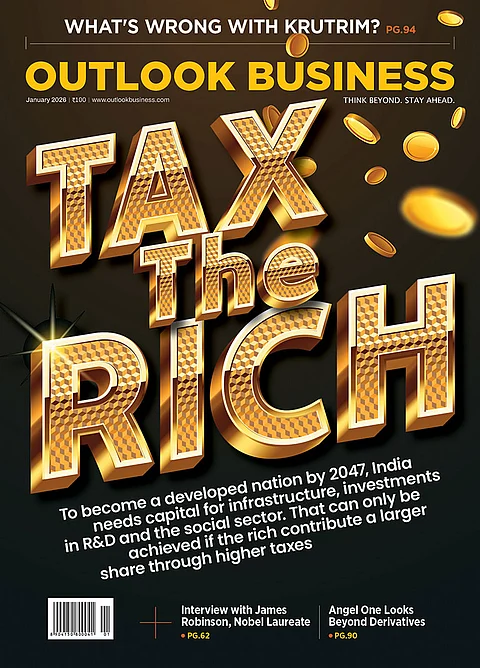
E-commerce hiring expected to grow 20–25%; quick commerce set for 40–60% surge
Focus areas will be last-mile delivery, dark stores, customer service, sales, HR, and operations
Key markets include Bengaluru, Mumbai, Delhi-NCR; emerging hubs in Tier-2/3 cities
Online commerce platforms are gearing up for one of their busiest hiring curve this festive season. While e-commerce platforms are expected to hire 20-25% more workers to manage the rising demand, the 10-minute delivery game may steal the spotlight. Industry experts predict a staggering 40-60% surge in hiring across quick commerce platforms.
The season workforce will be increased majorly in last-mile delivery and dark store operations to meet consumers’ demand for near-instant fulfilment, said Sonal Arora, country manager of GI Group Holding. However, e-commerce will still contribute the larger number of hires overall despite the strong growth rate of the quick commerce hiring pattern.
“The pressure to meet 10–30-minute delivery timelines makes riders and fulfilment workers the most critical resource,” said Balasubramanian A, senior vice president, TeamLease Services. In contrast, e-commerce platforms are likely to see steadier hiring growth across warehouse staff, sorting and returns teams, and customer service executives.
On the other hand, Rahul Veerwal, founder & CEO of GetWork also saw demand for multiple white-collar functions such as sales, human resource, operations, etc, as companies scale rapidly to meet festive season demand.
And this hiring growth, Balasubramanian believes that will be driven by a mix of large metros and fast-growing smaller cities. Demand is especially strong in Bengaluru, Mumbai, and Delhi-NCR, where dense urban clusters make 30-minute deliveries viable. At the same time, tier 2 and 3 cities are emerging as major hiring hotspots, with companies opening more dark stores.
Skills and Rewards
To keep up with this demand, employers in quick commerce are placing greater emphasis on operational and customer-facing skills that ensure speed and real-time problem-solving.
“For delivery agents, the focus is on app literacy, GPS navigation, basic smartphone troubleshooting, road safety training, and local language communication, along with valid driving credentials. Dark-store workforce is expected to have expertise in handling perishables, rapid pick-and-pack accuracy, and the use of handheld devices and barcode scanners,” Balasubramanian added.
In addition, for customer service teams, priority is being given to rapid issue resolution, empathy under tight service timelines, and familiarity with last-mile exception tools such as in-app refunds and ETA (estimated time of arrival) adjustments.
On top of that, Arora stated that chat and call center agents are being trained to respond more quickly and make better use of AI-driven dashboards for real-time delivery tracking and issue resolution. “Companies are increasingly relying on AI chatbots as the first point of contact, with continuous learning enhancing the bots’ effectiveness over time”.
Companies are even offering clear career pathways for high-performing gig workers to move into permanent or specialised managerial roles, which will improve retention and overall workforce engagement, according to TeamLease Services.
Balasubramanian said that compensation structures in quick commerce are evolving, but the trend is mixed. On one hand, base salaries and festive premium budgets are rising in some markets; on the other hand, per-order payouts have compressed in 2025, with reports indicating a 30–40% year-on-year decline in certain regions as platforms shift toward incentive-linked models.
“The result is a pay structure that relies more heavily on variable components such as bonuses, surge multipliers, and peak-hour incentives, alongside temporary festive premiums and local market adjustments, particularly in metros,” he added.
During the festive season, wages are also expected to rise by 12-15% in metropolitan cities and by a sharper 18-22% in tier 2 towns, according to TeamLease Services data. Instead of major jumps in base pay, companies are offering more dynamic earnings models - surge-time incentives, attendance-linked bonuses, referral benefits, and per-delivery payouts.
Long Term Play
Though festive hiring in quick commerce remains predominantly short-term, companies are increasingly looking at this hiring cycle as more than a “stopgap” solution. “Around 60–80% of the hiring during the festive season is expected to be short-term. However, many companies actively look to convert high-performing temporary workers into permanent employees,” said Arora.
Balasubramanian echoes similar sentiment, saying many platforms are implementing conversion initiatives to retain trained workers after the festive rush. These programs help reduce repeated onboarding expenses while ensuring continuity, especially in a highly competitive delivery market.
Young job seekers are playing a significant role in shaping these trends. Those looking for flexibility are more likely to opt for gig-style quick commerce roles, instant pay, and short-term commitment terms make it attractive to students and early-career workers.
Conversely, e-commerce roles attract candidates looking for more stable, organised roles in delivery, customer service, supply chain, or warehousing. For companies, this dual approach—balancing immediate seasonal needs with long-term talent acquisition—is becoming a key differentiator.



































